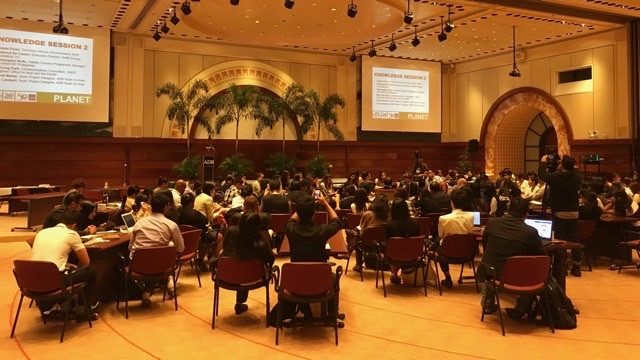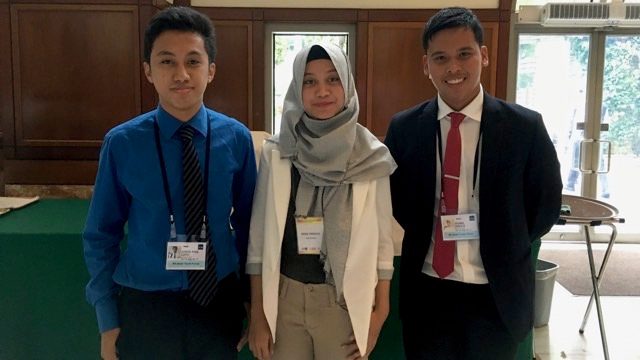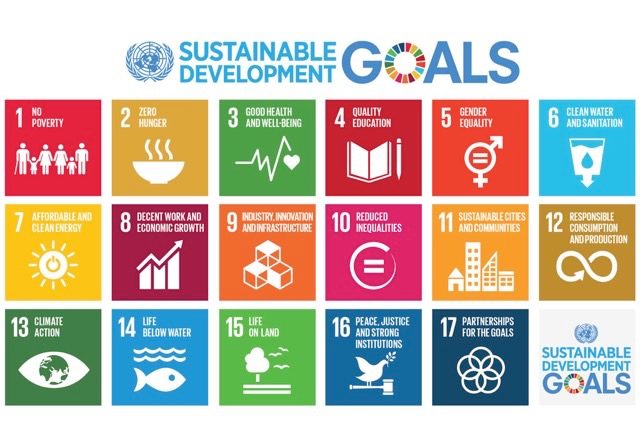SUMMARY
This is AI generated summarization, which may have errors. For context, always refer to the full article.

“Imagine the world in 2030.”
Carmela Locsin, one of the Director Generals at Asian Development Bank (ADB), addressed her large audience, inviting them all to close their eyes as they envisioned what the world would look like in 14 years. Given all the issues that plague the world today—climate change, terrorism, poverty, corruption—one would expect the audience to envision a world still deeply embroiled in these problems. Surprisingly, however, the audience’s answers conveyed a powerful sense of hope.
“I see a world where plants grow on the sides of our buildings, and our cities look like gardens,” said one of the audience members. “A world where everyone takes their bikes to work, and strangers wave to one another as they pass by.” Another audience member even went so far as to say that, in 14 years, we would be living in a world, “where not a single person suffers from hunger.”
This visualization was one of the many activities that took place during the Asian Youth Forum. The three-day seminar, hosted by ADB, gave youth delegates from all over Asia the chance to learn about the United Nations’ 17 Sustainable Development Goals (SDGs), and play a concrete part in bringing them to fruition. These goals, agreed upon by over 150 world leaders, are a call for people everywhere to work towards the improvement of five key areas: people, planet, peace, prosperity, and partnership. (READ: World leaders adopt global goals to end poverty in 15 years)
The Youth Forum was the culmination of the Asia Pacific Youth Exchange, a two week program in which youth delegates were encouraged to work towards the fulfillment of the SDGs. According to Hyoung Min Kim, the founder and director of the program, what really sets the Asia Pacific Youth Exchange apart from other youth conferences is that it gives participants the chance to “engage with the real world and create output, rather than just sit and listen to a series of talks all day.”
Immersion
The members of the Youth Forum also experienced a weeklong immersion, during which they experienced life in one of the Philippines’ many rural communities. During their stay in these communities, the delegates were divided into groups and tasked to solve problems related to the SDGs.
At the Youth Forum, the groups were given the chance to present their ideas to a panel. The ideas with the most merit will be funded and implemented by ADB, together with its many partner organizations. The three winning youth programs were those that dealt with the SDGs on affordable & clean energy, clean water & sanitation, and no hunger.

Innovative programs
Jethro Jungco, a Filipino youth delegate from Sta. Rosa who is currently studying industrial engineering led a team that developed a solar power system that could provide continuous electricity to the residents of a small barangay in Pangasinan. Their system was designed so that its beneficiaries would be able to sell excess energy back to the grid.
“This way,” said Jungco, “the project will be sustainable in the long run. The people of the barangay will be able to pay for the maintenance of their solar panels, and even improve their community by having cell towers built.”
Aaron Lopez, another Filipino youth delegate, focused on providing clean water and sanitation. Lopez and his team designed the Water and Sanitation House (WASH) for communities without access to clean water. The WASH is a small structure that collects rainwater, then uses bicycle-powered machines called “aquaducts” to purify it. According to Lopez, the WASH’s manually powered technology will ensure that even people in remote areas will always have access to clean water.
Nisa Vidya Yuniarti, a youth delegate from Indonesia, focused on eliminating hunger. Yuniarti and her group began their “No Hunger” project by researching on the dietary needs of citizens from a small community in Sta. Rosa, Laguna.
“We found that the people of the community, especially women, weren’t getting enough vegetables, fruits, and rice,” said Yuniarti. “They were only eating these foods one to two times a week, when they should have been eating them everyday.”
To alleviate the problem, the group developed a program that would teach women how to cultivate specific fruit plantations. According to the group, these fruit plantations would yield enough fruit to meet the community’s dietary needs, along with some excess crop that could be sold.
These three extraordinary youth groups have actually already proposed their programs to the LGUs of their respective immersion communities, and are in the process of fleshing out the finer details of their plans.
Now that they’ve made their voices heard at the Asian Youth Forum, the programs they’ve designed are on the way to implementation. With support and funding from ADB, LGUs, and partner organizations, it shouldn’t be long until communities around the country start to benefit from these youth projects. – Rappler.com
Paco Tantoco is a student of the Ateneo de Manila University and a Rappler Intern.
Add a comment
How does this make you feel?

There are no comments yet. Add your comment to start the conversation.